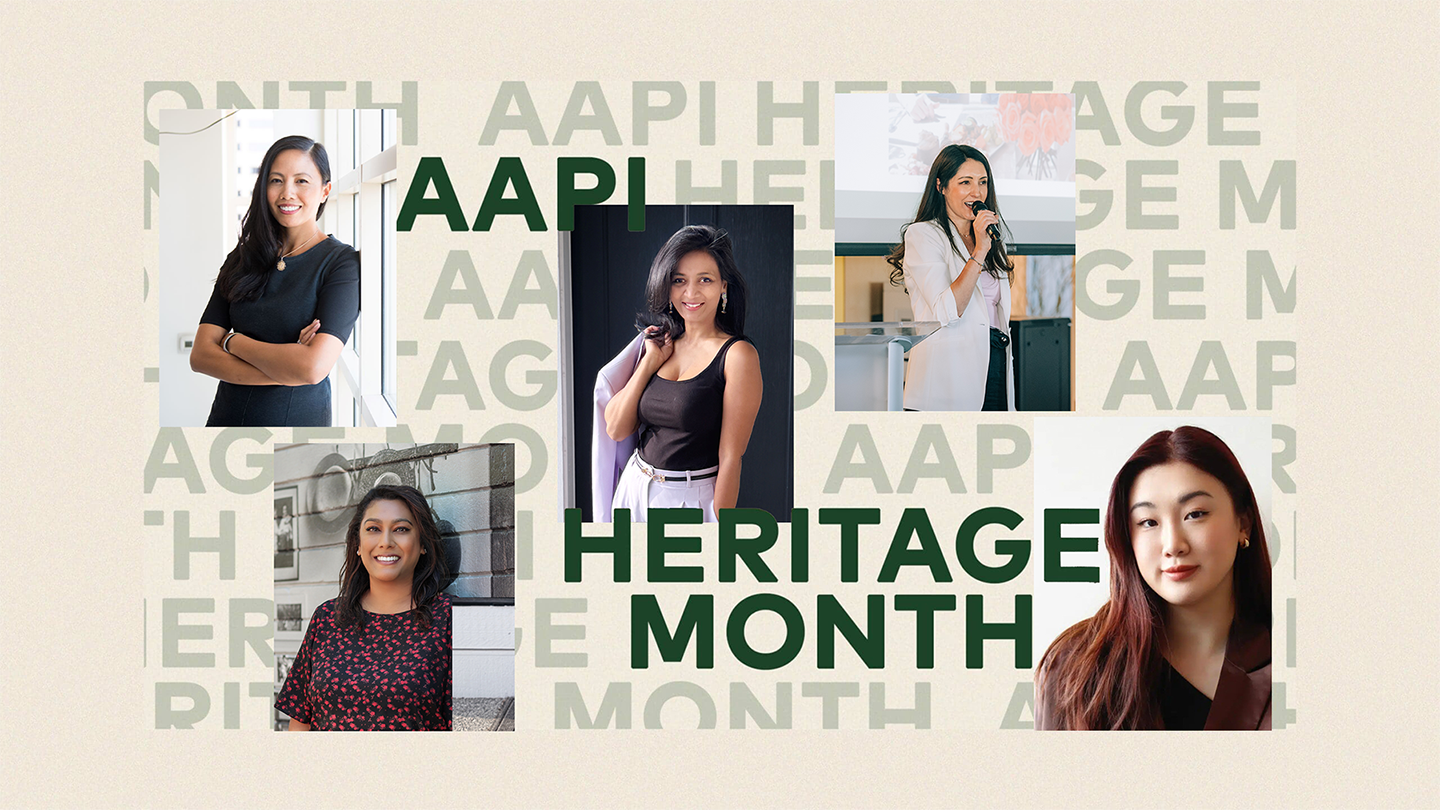
Beyond May: Understanding & Celebrating Asian American and Pacific Islander Heritage
May is more than a month — it’s a reminder to honor, amplify, and explore the stories of Asian American and Pacific Islander communities.
Asian American and Pacific Islander (AAPI) Heritage Month begins each year with the arrival of May. First recognized by the federal government in 1978 under President Jimmy Carter, the celebration began as a weeklong observance. It was introduced by Representative Frank Horton of New York, inspired by Jeanie Jew — an advocate that pushed for recognition after noticing the exclusion of AAPI contributions during the 1976 Bicentennial. Her grandfather, a Chinese laborer who worked on the transcontinental railroad, was killed in an act of anti-Chinese violence.
The celebration of AAPI Heritage Month takes place in May to commemorate two key events: the arrival of the first Japanese immigrant to the U.S. in May 1843 and the completion of the transcontinental railroad in May 1869 — a project built largely by Chinese laborers.
Despite progress, AAPI communities have long faced stereotypes, discrimination and marginalization issues further exacerbated by the COVID-19 pandemic. The richness and diversity of Asian cultures cannot be fully captured under the broad “AAPI” label.
While the term AAPI aims to promote visibility and unity, it often overlooks the unique identities and histories within these communities. Organizations such as Make Us Visible work diligently to raise and empower local communities to integrate Asian American contributions, experiences, and histories in K-12 classrooms, their goal primarily is to provide every community with the support and resources necessary for them to begin their conversations on Asian American history. As we honor this month of heritage, history, and culture, WERULE and The New School’s Impact Entrepreneurship Initiative are proud to highlight AAPI leaders that deserve recognition and celebration for their contributions.
Article written by Nevena Doncheva
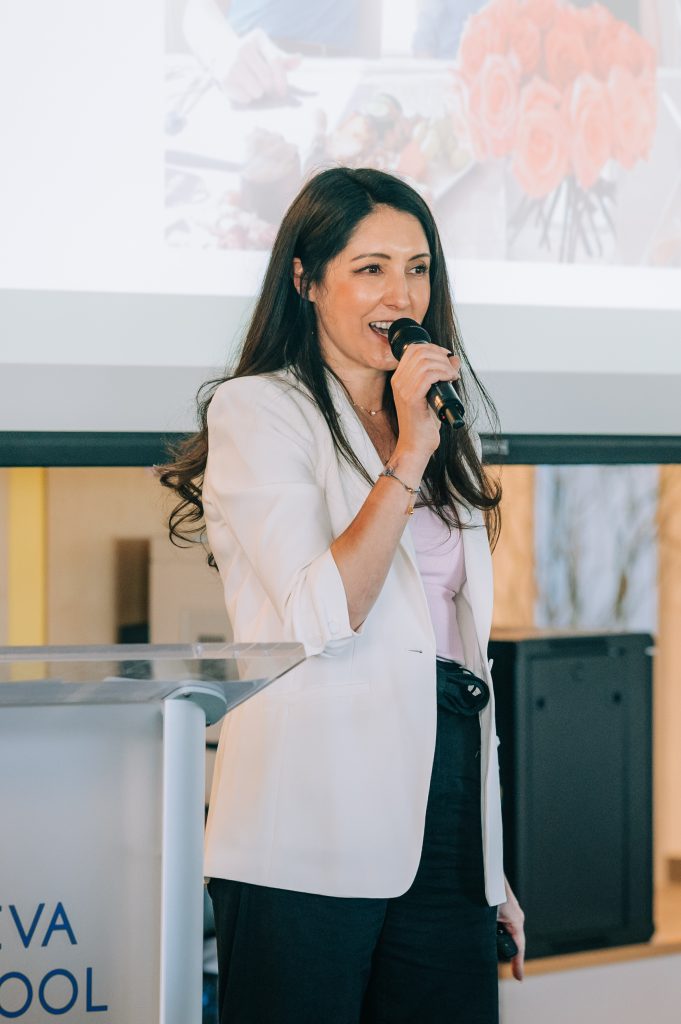
Misasha Suzuki Graham, Co-Founder @ Dear White Women//What Do You Mean By That?
Misasha Suzuki Graham (she/her) is a Harvard and Columbia Law-educated attorney and social justice advocate who believes that our voices are the most powerful when we use them to get loud for each other. Throughout her legal career, she has advocated for equity and inclusion, not only through creating and supporting those efforts in the legal profession, but also through election protection work, navigating book bans, and upholding the rule of law. She is also the co-founder and co-host of the award-winning podcast and platform What Do You Mean By That?, and co-author of the book Dear White Women: Let’s Get (Un)comfortable Talking About Racism. Misasha specializes in speaking about and facilitating conversations on racial and social justice, intersectionality, and systemic inequality, drawing from her own multi-ethnic Japanese and White identity and experiences as a mother raising multi-ethnic Black, Japanese and White tween boys in the Bay Area of California.
“Be smaller. Take up less space. Are you even Asian enough? These are the messages that I was told, both explicitly and implicitly, growing up. As the multiethnic daughter of a Japanese immigrant father, who, at 6’2″, was tall for American standards, but extremely tall for Japanese standards, and a White mother – a daughter who eventually grew to 5’7″ (same height as my Japanese grandmother, I might add), I heard these nonstop. I was too loud. Too big. And, especially when I tried to enter exclusively Asian circles, not Asian enough. It took me decades to unlearn these messages, and so every time I get the chance, I tell others: take up space. Get loud, for yourselves and each other. This has become my purpose in the social justice work that I do, and the themes that I weave into my speaking, writing, facilitating, and more. And, especially to my multiethnic boys, friends, and others: don’t let anyone tell you you’re not Asian enough. No one gets to define that for you. Your voice is power: for yourself, and for each other.”
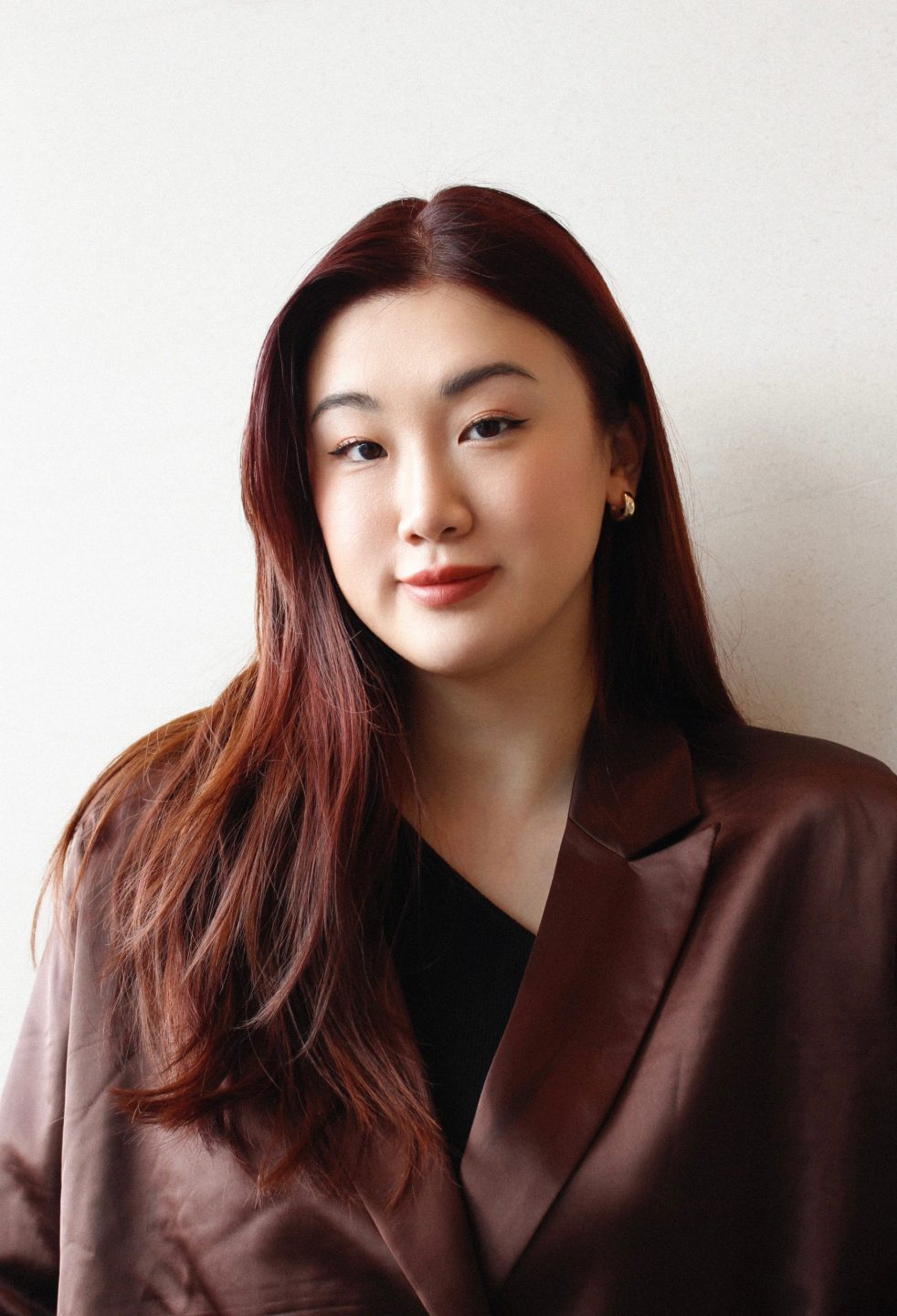
YouMe Lin, Founder and Creative Director @ Cloud Studio
YouMe Lin is the founder of Cloud Studio, the world’s first mission-driven creative partner delivering world-class digital growth and brand experiences—while giving back. Her award-winning agency has partnered with global Fortune 500 brands, blending the precision of digital strategy with the art of storytelling to drive cultural impact. Named by Fast Company for innovation in workplace culture, Cloud Studio is rooted in values of inclusivity, creativity, and impact. As a proud AAPI entrepreneur, YouMe launched initiatives like Office Hours by Cloud to support minority women founders and leads campaigns that give back to causes including mental health and sustainability.
“Growing up as an AAPI woman, I often felt I had to shrink parts of myself to fit into spaces where leadership didn’t look like me. Early in my career, I was often the youngest and the only Asian woman in the executive room, frequently doubted for both my age and identity. But instead of seeing that as a limitation, I chose to see it as fuel. One quote that guided me was, “Your difference is your superpower.” That mindset helped me build Cloud Studio not in spite of my identity, but because of it. I set out to create the kind of company I wished had existed when I was starting out: inclusive, purpose-led, and unapologetically values-driven. Being an AAPI leader isn’t about checking a box—it’s about breaking them. It’s about showing up fully so others feel empowered to do the same. One of my proudest moments was launching Office Hours by Cloud, where we offer complimentary marketing consultations for minority women founders nationwide—a reminder of how deeply representation can shape what someone believes is possible. We’re not just building brands—we’re building belief systems.”
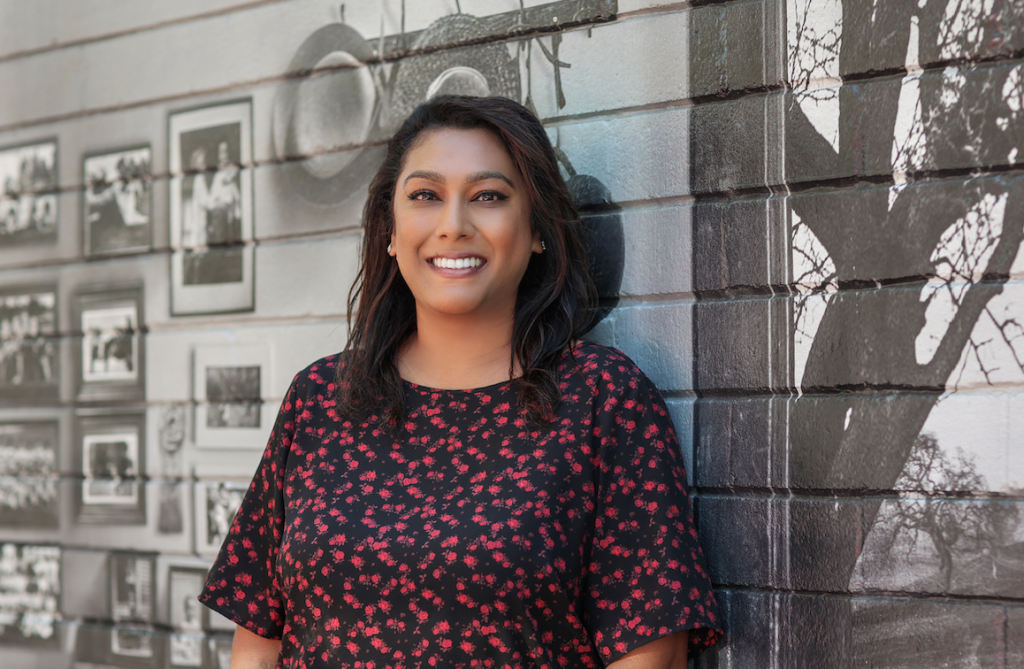
Rosaline Raj, Founder, Creative Chaos Communications
Founder of Creative Chaos Communications, an empathy-driven consultancy that helps marketing, sales and event teams drive revenue. She’s also a mentor, advisor to female founders and a certified meditation teacher. She regularly supports causes related to mental health, women and children.
“As a Fijian-Indian, I was taught to be humble, respectful and put family-first. Strength means sacrifice, leadership is quiet, women are expected to serve, not lead and manage many unspoken roles and rules. Balancing cultural expectations, family obligations and personal ambition was something I always carried quietly.
I navigated a similar path as I moved through different companies and leadership roles—each with their own culture, expectations and unspoken rules. Many of us were raised to keep our heads down, work hard and not rock the boat. But as a leader, I’ve had to unlearn that silence while still honoring my roots. Learn how to be seen, take up space, practice self-care and lead in ways that weren’t always welcome. It was uncomfortable. But it was growth. Being an AAPI leader means being able to build bridges between cultures, generations and perspectives. And it means showing up with empathy, emotional intelligence, resilience, grit and gratitude that comes from Indian roots, Fijian traditions and American aspirations.”
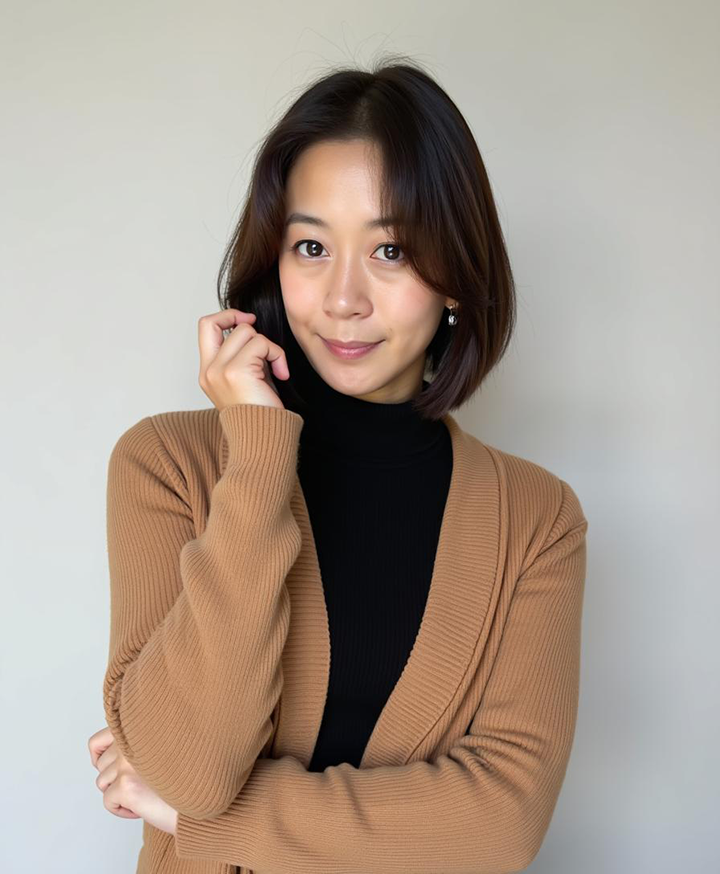
Clara Ma, Founder & CEO @ Ask a Chief of Staff
Clara Ma is the Founder & CEO of Ask a Chief of Staff, a boutique executive search and career development platform dedicated to placing and empowering the next generation of strategic operators. With a background in venture-backed startups, Clara launched her company to elevate operational leaders—especially women and people of color—into roles that shape how modern organizations run. She also leads a private, global Chief of Staff community that supports hundreds of members through mentorship, workshops, and peer learning. Clara is passionate about inclusive leadership and the ripple effects of putting the right people in the right rooms. Her work has been featured in Fast Company, Thrive Global, and First Round Review. She is a proud daughter of Chinese immigrants and lives in New York City.
“Growing up as the daughter of immigrants, I internalized early the value of humility, hard work, and staying behind the scenes. But as I stepped into leadership roles, I realized that visibility, not just competence, is key to shaping change. I had to unlearn the instinct to minimize my voice, and instead embrace the idea that taking up space isn’t just about me: it’s about opening doors for others. Being an AAPI leader means honoring the people who made my path possible, while making it smoother for the next generation. One moment that crystallized this for me was when a younger AAPI professional reached out after a panel and said, “I’ve never seen someone who looked like me speak with that kind of conviction.” That reminder (that presence can be a form of power)stays with me. Whether I’m mentoring a future Chief of Staff, speaking on a stage, or building behind the scenes, I lead with both pride and purpose in my identity.”
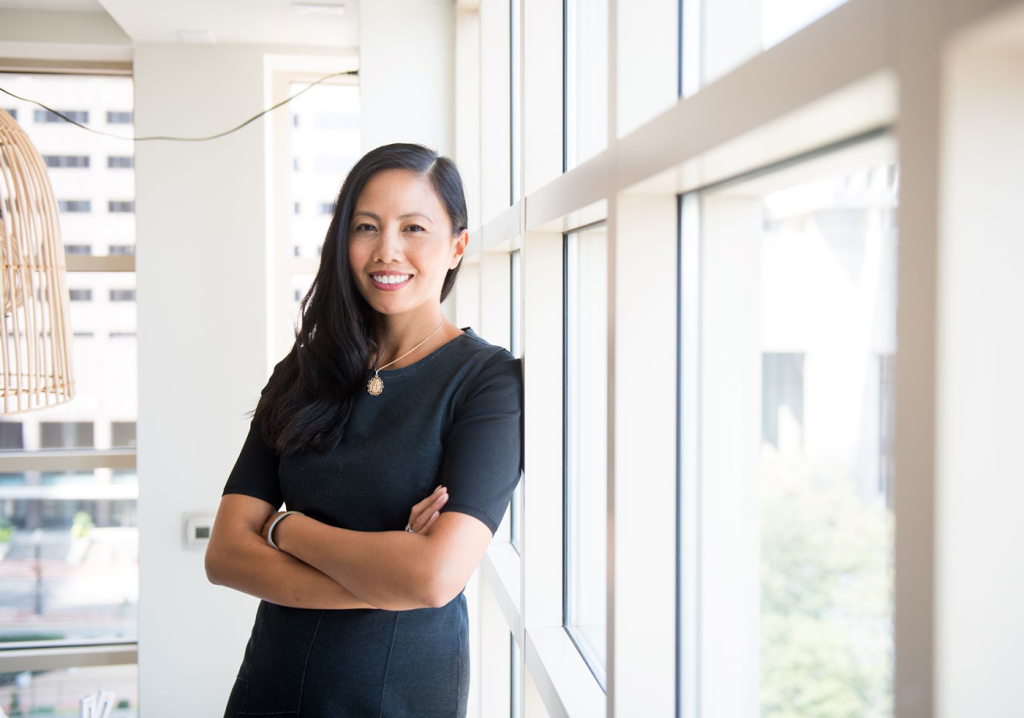
Christine Mastrangelo, Partner @ Cue Ball Capital
Christine Mastrangelo has spent her career in early stage investing and entrepreneurship. She is a Partner at Cue Ball Capital, where she leads and supports women-focused investments. She was also an early team member of MiniLuxe, the clean beauty brand that is elevating the nail care industry, where she played both operational and brand leader roles. Christine has a long track record of mentoring entrepreneurial students and early-stage founders, serving as mentor for the Tory Burch Foundation, Boston University’s Innovation Lab where she received her undergraduate degree, and was awarded the COI Social Impact Award for her work over five years supporting women entrepreneurs of color. As a long-term board member, she currently serves as Chair of the Boston Book Festival where she is also a member of the Fiction Committee.
“I walk along the crowded sidewalk, my arm linked with my father’s. He’s reached a stage in life where he has been awarded a sense of true happiness – pride and peace of mind. His daughter’s children are not only healthy, but his oldest grandchild is graduating college, and he will soon witness her being handed a well-earned diploma. “I used to work there,” he points to the brick building ahead. He tells me how he loved that time of his life, forty years ago when he first arrived in Boston from the Philippines and was lucky enough to have obtained a job at the university his granddaughter is graduating from now. “There was racism then, but my boss trusted me.” When my father tells me the story of his first boss in the US, I think about the generosity my father received from this person. Though they worked together for only 2 years, I know my father will never forget him. There was an openness to speak with and then hire a person of color whose previous work experience was very brief at some no-name company in a country he never stepped foot it.
We suddenly see my daughter, waving from the crowd of students, her dark hair is loose and flies in the wind under her cap. I think about my mother, the openness she had and the trust in herself, leaving my father and older brother, 3 months old at the time, to immigrate to the US on a work visa, find an apartment, start a nursing job and then create a home to welcome her husband and infant son. We weave our way amongst the crowd, and I think about my parent’s struggle to assimilate as quickly as possible – no speaking Tagalog to the children, wear American brand name clothing, host a neighborhood barbeque – though several neighbors would never come.
Despite this, and many other challenges, I have taken the spirit of openness and generosity that they have both embodied and been given as the guiding principle of my career and how I raise my own family. How can I truly be afraid of any opportunity and its potential risks knowing what my mother went through when she left her baby and husband to begin a new life for them all? How can I not make time for others who reach out and ask for advice, both career and personal? “How can I be helpful?” – is a question that I have found is a wonderful way to begin a conversation. There is certainly no way my father would have had this beautifully circular moment had not his first work experience in the US been one where his manager took him on without any form of pretense or bias. And to make it all the sweeter, he also watched me graduate from the same university twenty years ago.”
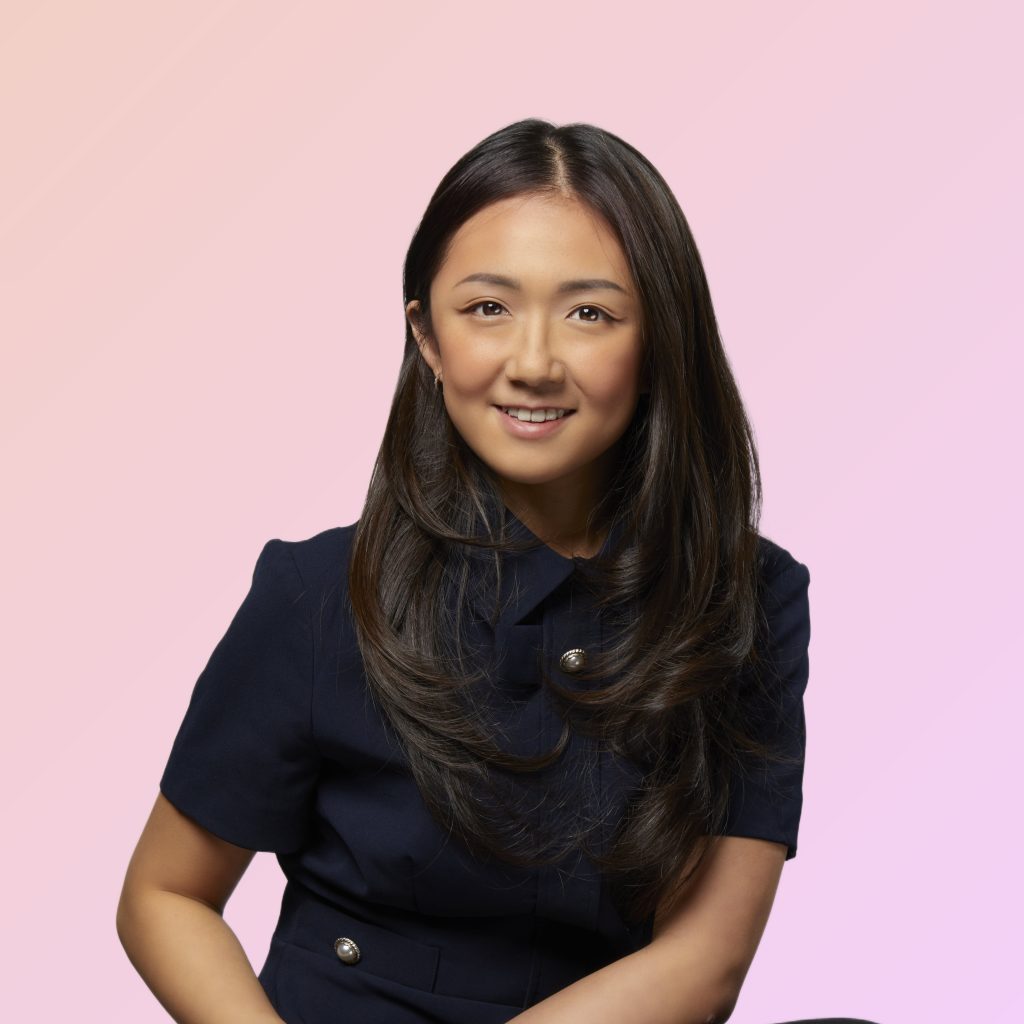
Candice Ooi, Principal Consultant of Candice Ooi Consulting
Candice Ooi is a Fractional Chief of Staff and the Principal Consultant of Candice Ooi Consulting, where she partners with visionary founders and executives to drive clarity, alignment, and strategic execution across their businesses. With a background in science and business, she bridges high-level thinking with hands-on support, helping leaders scale sustainably without losing focus. Candice specializes in turning ambiguity into action, building systems that support both the business and the people behind it. Growing up in Southeast Asia, she brings a global perspective and culturally attuned approach to every engagement. Whether she’s leading internal alignment or shaping external presence, Candice helps her clients show up with intention, influence, and integrity.
“Growing up as a Malaysian-Chinese woman navigating spaces in North America where leadership often looked and sounded different from me, I learned early on that presence isn’t just about volume, it’s about intention. In many rooms, I was the only one who looked like me, and instead of molding myself to fit in, I began to lead with empathy, clarity, and quiet conviction. I realized that my cultural roots weren’t a barrier to leadership, but a strength to makes me who I am. One quote that’s stayed with me is, “You don’t have to be loud to lead. You just have to be clear.” As an AAPI leader, I’ve come to see that representation isn’t just about being seen, it’s about being understood. That’s why I show up as I am, hoping to carve space for others to do the same. We’re not here to prove we belong. We’re here to lead in ways that are true to who we are.”
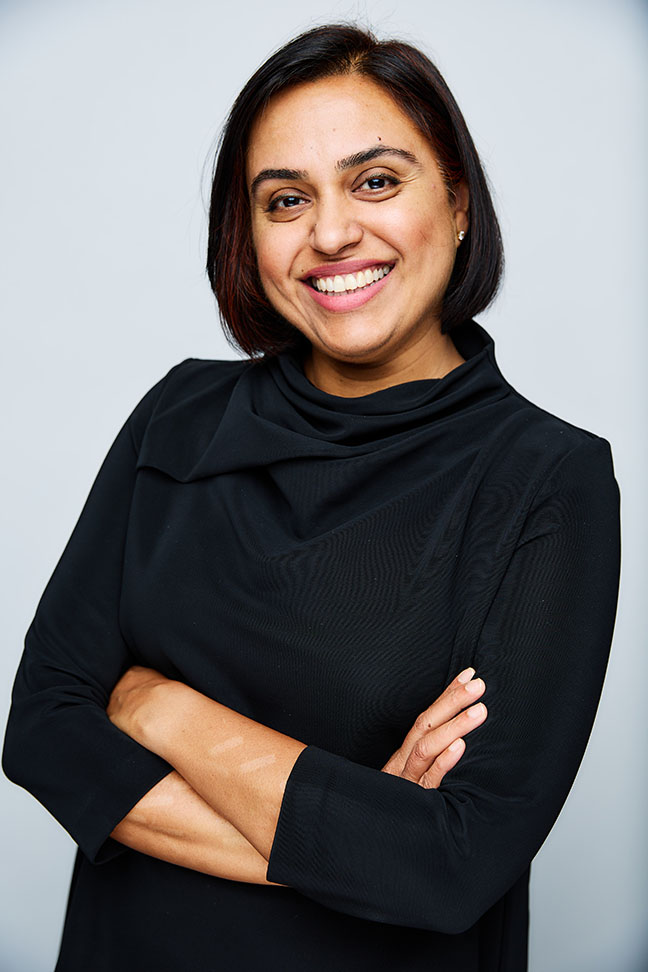
Preeti Suri, Founder @ AdventureTripr
Preeti Suri is the founder and CEO of AdventureTripr, a purpose-driven travel tech platform making premium, small-group adventures more accessible to everyone. A former investment banker and consultant, Preeti left her corporate career after a transformative postpartum journey that led her from recovery to summiting Mt. Rainier in under a year. That experience inspired her to build AdventureTripr – a curated marketplace that removes the barriers to outdoor exploration, especially for underrepresented communities. Since launching in 2019, she has grown the company through a pandemic, earned recognition as a several travel awards winner, and become a champion for women-led ventures, outdoor equity, and travel innovation. When she’s not building her startup, Preeti hosts free educational events to help beginners take their first step into the outdoors – and into themselves.
“Preeti’s journey into the outdoors began as a deeply personal one-a way to regain strength and navigate postpartum depression. On her son’s second birthday, she summited Mt. Rainier, and in that moment, she felt the transformative power of nature. But what stood out just as much was who wasn’t on the mountain: people who looked like her. As an immigrant and a South Asian woman, she realized how many cultural, social, and economic barriers stood between underrepresented communities and the outdoors. That insight didn’t just stay with her-it became her mission. She founded AdventureTripr to eliminate those barriers and create more inclusive access to nature, connecting travelers with local guides and small operators. In doing so, she didn’t just claim space in an industry where few AAPI women lead-she built a platform that makes space for others. To Preeti, being an AAPI leader means turning personal experience into collective empowerment-and reimagining who gets to belong in the wild.”

Aditi Sinha, Founder & Creative Director of Point of View
Aditi Sinha is a marketing leader, fashion entrepreneur, and builder of bold ideas. She’s the Founder & Creative Director of Point of View (POV)-a modern functional workwear brand on a mission to end pocket inequality for women. Before founding POV, Aditi led high-impact marketing at Amazon and Chewy, driving global brand moments like Prime Day and redefining how brands connect with modern consumers. Today, she also serves as a fractional CMO to startups, helping mission-driven companies grow with clarity and conviction. She believes that when women are given space-whether in pockets, boardrooms, or society-they fill it with power, purpose, and possibility.
“A friend once told me, lovingly but firmly, that as Indian women, we should stick to tech. That our skin color had already “proven” itself there. I understood what they meant. There aren’t many South Asian women in the fashion industry, let alone in the space where form meets function, where style meets systems thinking. But I didn’t want the color of my skin to limit the impact of my ideas. I started Point of View because I believed that pockets-real, functional pockets-could be a powerful symbol of what women deserve. Space. Freedom. Utility. And I refused to believe that creating that space wasn’t “for me.” There weren’t many faces that looked like mine when I started. But I found my tribe—within and beyond my community. Women who resonated with the mission. Who believed that representation isn’t just about presence, but about possibility. As an AAPI woman, I’ve learned that honoring your heritage doesn’t mean following a script. Sometimes it means writing a new one-and making sure it has pockets.”
ABOUT THE AUTHOR:
Nevena Doncheva is a Chicago-based high school writer and aspiring journalist with a passion for fashion, culture, and lifestyle, offering a fresh perspective on the world.
